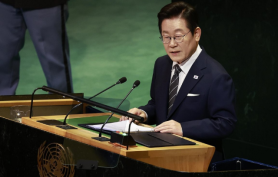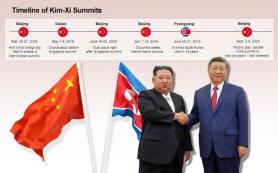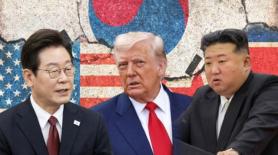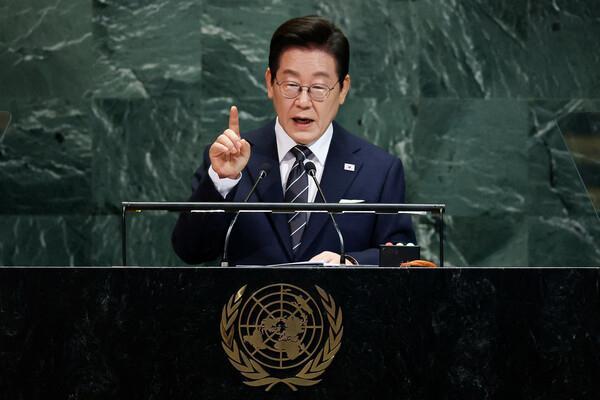
Dubbed the "END" initiative, it reflects his vision for easing tensions on the Korean Peninsula through exchange, normalization, and denuclearization.
"We must end the era of hostility and confrontation on the Korean Peninsula," said Lee, stressing that "exchange and cooperation" are the fastest path to peace.
He pledged to gradually expand inter-Korean exchanges, support efforts to normalize Pyongyang's standing in the international community, and pursue a three-step denuclearization process: halting, reducing, and dismantling nuclear weapons programs.
Lee also emphasized that South Korea will not seek reunification by absorbing one side in any form and has no intention of engaging in hostile acts. The remarks appeared to respond to North Korean leader Kim Jong-un's speech last Sunday, in which he said reunification between the two Koreas can "never be achieved unless one of them ceases to exist," accusing Seoul of pursuing reunification by trying to absorb the North.
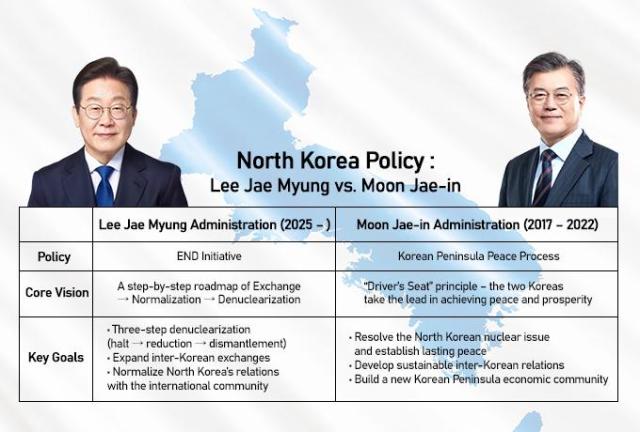
But the situation has now completely changed, as Pyongyang has rejected talks with Seoul, leaving the South little room to play such a role.
For this reason, Lee may want to play a role as a "mediator" in negotiations with North Korea, as he asked Trump to act as a "peacemaker" while positioning himself as the "pacemaker" during his first bilateral meeting with the U.S. leader in Washington late last month.
Cho Han-bum, a senior researcher at the Korea Institute for National Unification, told AJP on Wednesday that Moon's policy was based on the premise that South Korea could take the lead in resolving North Korea-related issues. But with Pyongyang now refusing to engage with Seoul at all, Cho said the Lee administration's main shift is to "accept reality, focus on managing tensions on the Korean Peninsula, and look for a breakthrough in U.S.-North Korea relations."
But questions still remain over how feasible Lee's initiative will be. North Korea has stipulated its status as a nuclear power in its constitution and has shown little interest in dialogue with Seoul, making near-term progress on denuclearization unlikely.
Cho added that Lee appeared to adjust his priorities through his phased, gradual approach without abandoning the ultimate goal of North Korea’s complete denuclearization, reflecting his pragmatic diplomatic strategy.
Regarding Lee's remarks vowing to "restore trust between the two Koreas," Cheong Seong-chang, vice president of the Sejong Institute, pointed out that Pyongyang's refusal to talk with the South is "not about trust." He added that North Korea has made clear it will never give up its nuclear weapons. "As long as Seoul clings to a policy the North will never accept, prospects for inter-Korean dialogue remain very slim."
Copyright ⓒ Aju Press All rights reserved.


